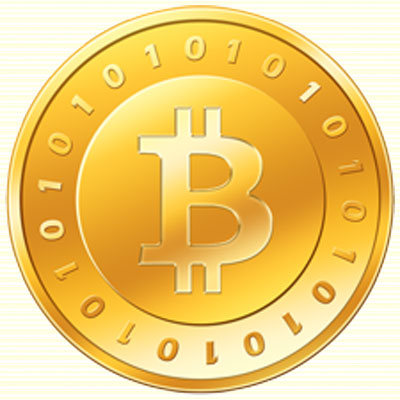Malware Theft of Bitcoins a False Flag to Discredit Revolutionary Currency? 
(Editor's Note: More news about bitcoin. The more I consider the possibilities of a net borne "digital currency", the more confounded I become. Upon my introduction to the rudiments of the system, I had, as infrequent as they may be, an epiphanic moment. I experienced a sudden understanding of exactly what the problem is. By the problem I mean the basic flaw in the world's social system that is the source of all the ills of humanity. Pretty heavy, huh? The current system of the control of money is the problem. The Federal Reserve is the problem. The Bank of England is the problem. The criminals that administer the institutions cited above and all like institutions the world over are the problem. Taking the control of money away from them is the solution. It is their intent and their control of our money that is responsible for everything that is wrong. Everything! Consequently the control of the money system cannot be entrusted to any group or individual. Greed is the devil. No matter how honest or well meaning an individual or group is (really) the temptation (another term for the devil) will always be too great to be entrusted to specific group of humans. As long as evil exists (the devil) megalomaniacs will attempt to control everything. I realized that the concept of Bitcoins was the first alternative that I had ever been presented with. In fact, until my introduction to bitcoin, there wasn't, to my knowledge, an alternative. To a lot of people reading this, it might seem like the old Silver Bear has finally lost it. I would expect that the consideration that money could actually be "the root of all evil" may seem sophomoric to all but the puritans (the tenets of which I don't agree). But it's not money that is the root of all evil, but the temptation (the devil) to control money. The control of money makes a free market impossible to achieve. And, as my epiphany provided, a free market is the solution. Now, way back to the beginning of this thought process. I mentioned that I was confounded. I was so hopeful that an open source, international group of, mostly, honest , with some altruism thrown in, programmers might be able to police themselves, and withstand the assault from the evil minions that would surely raise their festered heads in an attempt to "game the system". The following missive goes so far as to suggest that the most recent malware attack may have been a government sponsored event. "Oh what a wicked web they weave..." - JSB) Breaking News! A man leaves wallet unattended, it gets stolen. Senate to ban wallets to protect citizens from theft. I am totally devastated today. I just woke up to see a very large chunk of my bitcoin balance gone to the following address...If only the wallet file was encrypted on the HD. I do feel like this is my fault for not moving that money to a separate non windows computer. I backed up my wallet.dat file religiously and encrypted it but that does not do me much good when someone or some trojan or something had direct access to my computer somehow.The threat was confirmed by Symantec, operator of Norton AntiVirus, who tracked down the malware code that was used and claimed we can expect more hackers will get in on the action because of Bitcoin's growing popularity and value: "We expect that code similar to the techniques described above will find a way into other malware considering the amount of attention this sort of attack is currently receiving and with the amount of Bitcoins currently available for purchase." It's not the validity of the event that I question, it's the curious timing in an ominous news cycle for Bitcoin. What was once a fringe "underground" currency only known to open-source geeks has now stormed the mainstream media in dramatic fashion, not least because of extensive coverage by the alternative media. What's interesting about the coverage of the Bitcoin is its rapid decent from clear and sunny to treacherously cloudy in the blink of an eye. Well, more like three weeks, but breathtakingly fast nonetheless.
In short, Bitcoin went from being introduced to the public, to hailed as a savior of failed centralized banking and debt-based money, to being thoroughly discredited in less than a month. Does that seem strange to anyone but me? It seems that just the idea of peer-to-peer anonymous digital currency - if as advertised by MIT and others - is potentially a major threat to the banskter's monopoly on money and the state's ability to vampire the taxes from online transactions. To qualify my paranoia, I have no doubt that your everyday thief has plenty of motivation for scoring a big payday, yet there is also enough evidence to speculate that very powerful interests have a vested interest in discrediting the Bitcoin. And this high-profile theft has certainly crippled Bitcoin's credibility; and the person least likely to benefit is the guy who just stole a half-a-million dollar's worth of it. Therefore, the thief had to know his booty would lose tremendous value in light of the security compromise. Hence, the stronger motivation has prevailed; the message being that Bitcoin - or anything like it - is not to be trusted. |
 |
 |